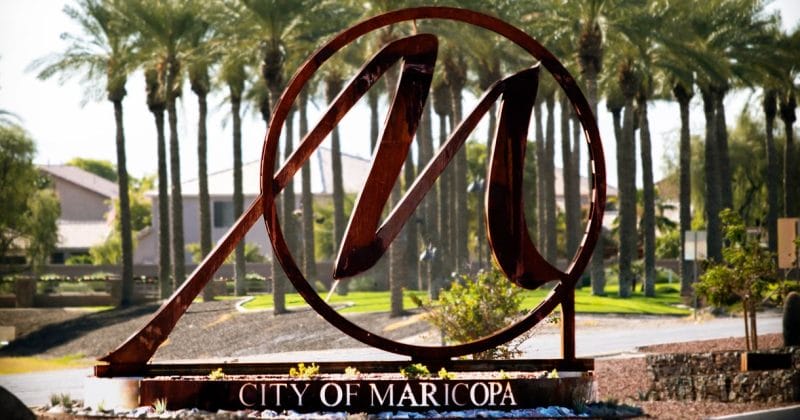By Adam Trenk, Rose Law Group Partner and Director of Cannabis, Hemp and Equine Law Departments
Marijuana is legally considered a “Schedule 1” controlled substance in Arizona. In Arizona, the possession, use, cultivation, transportation, and production of any form of marijuana without a medical marijuana card will result in facing felony charges. See A.R.S. §13-3405.
For example, if you’re caught with any amount of marijuana less than two pounds, you could face a Class 6 felony. This is the least serious charge under Arizona marijuana criminal statutes, as there are currently no misdemeanor marijuana classifications in the Arizona criminal statutes.
However, pursuant to Arizona Revised Statutes § 13-604, if you do not have two or more prior felony convictions, the Court may designate the offense a misdemeanor at the time that judgment is entered. The decision of whether or not to consider your charge a misdemeanor or a felony is left completely to the discretion of the judge that is hearing your case. This can be particularly unsettling, especially when you consider the very real and serious consequences of having a felony drug conviction on your record.
Below is a summary of how a felony drug conviction can affect some of your rights and what you can do to restore these rights.
1. Voting
Your right to vote is suspended if you are convicted of a felony marijuana offense. See A.R.S. § 13-904. If a person has only been convicted of a single felony offense, the right to vote is automatically restored as soon as the court-imposed sentence has been completed. When the individual has completed the sentence, the only action they need to take to be eligible to vote is to complete and submit a new registration form. In this situation, the person does not have to apply to the court to have the right to vote restored; it is automatic. See A.R.S. § 13-912.
If you have been convicted of two or more felony offenses, you must petition the court to restore your voting rights. This is an arduous process, that should be completed with the assistance of an attorney.
It is important to know that if a person signs and submits a voter registration form and they are not eligible to vote, they have committed a felony offense merely by registering to vote. See A.R.S. § 16-182. Should that person also actually vote in any election, they have committed another felony offense. See A.R.S. § 16-1016.
2. Gun Ownership
Arizona statutes have defined a list of “prohibited possessors”. Under these statutes, a person who has been “convicted of a felony offense, and who has not had their state civil right to possess a firearm restored is prohibited from possessing or carrying a firearm. See ARS §13-3101(7)(b).
Violating this law is a class 4 felony and is punishable by up to two and a half years in jail. See ARS §13-3102.
In Arizona, your firearm rights may be restored for marijuana felony convictions two years after you have completed probation or the date you are completely discharged from imprisonment. After you
have met the waiting period for your offense you need to file a petition to have your firearm rights restored. This means that you must make a written request with the court.
3. Medical Marijuana Dispensary Ownership and Consumption
Medical marijuana was legalized in Arizona in 2010 with the passing of The Arizona Medical Marijuana Act (“Prop 203”). Under Prop 203, individuals who have been convicted of a marijuana related felony within the last ten (10) years are unable to own, operate, serve as a director, or work in a medical marijuana dispensary in Arizona. See Section 36-2804 and 36-2804.01.
While the current laws in Arizona don’t allow convicted felons to work for marijuana dispensaries, patients who have received a prescription from a licensed doctor can gain access to medical marijuana regardless of their previous convictions.
4. Social Security and Food Stamps
People convicted of a felony for possession or sale of marijuana may lose their ability to obtain food stamps and social security benefits if they are not in compliance with the terms of their probation or parole. See ARS §13-3418. Under state programs funded by the Social Security Act, the benefits afforded to family members of the convicted felon will be reduced by the amount which would have been made available to the defendant. Benefits under the Food and Stamp Act, for the defendant’s family, may be recalculated as if the defendant were not a member of the family.
5. Federal Student Loans
A person who is convicted of a felony possession drug offense and were receiving educational grants, loans, or were participating in a federal work assistance program are barred from further assistance for one (1) year for a first time offense, two (2) years for a second offense and life for a third or more offense.
Also barred as a result of an Arizona felony marijuana conviction are any money or services provided by this state for scholarships or tuition waivers granted for state funded universities or community colleges. See ARS 13-3418 (C). Under these circumstances, the court has the sole power to determine the length of time that shall elapse before the person’s eligibility is restored.
HOPE FOR THOSE IMPACTED
All of these consequences could potentially change this November if Proposition 207 (“Prop 207”) is passed by Arizona voters. Prop 207 provides that individuals who were previously convicted for the cultivation, possession, and use of small quantities of marijuana may petition to have their record expunged starting July 12, 2021. In effect, this would mean that an individual’s prior marijuana offenses would be cleaned from their record and unable to be used in subsequent prosecution.
As a result, if you have criminal marijuana violation that was classified as a felony under the current Arizona law, Prop 207 would potentially allow a successful petitioner to have peace of mind knowing that their past indiscretions will not have continuing negative consequences on their lives.








